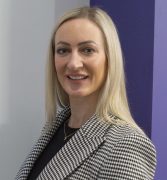On 8 September 2020, the House of Commons Justice Committee held their inquiry on The Coroner’s Service.
Evidence was heard from André Rebello, Senior Coroner for Liverpool and Wirral Area, Dr Mike Osborn, Death Investigations Committee and Royal College of Pathologists, Deborah Coles, Executive Director at INQUEST, Andrew McCulloch, Lisa O’Dwyer, Medico-Legal Services at Action against Medical Accidents, and Charlotte Haworth Hird, Bindmans LLP.
INQUEST’s call for action
INQUEST has long called for action from the government on the coronial system, which is currently failing in its role to prevent future deaths and struggling to ensure bereaved families have access to justice.
The key concerns that INQUEST raised include:
-
The need for a full time Chief Coroner and a National Coroner’s Service, rather than the current part time Chief Coroner and inconsistent localised services.
-
The establishment of a National Oversight Mechanism; a new independent body with the duty to collate, analyse and monitor the currently disparate, hard to access and locally held recommendations of coroners and other post-death investigations and inquiries.
-
The introduction of a right to appeal to the Chief Coroner, to address the current absence of accessible appeal mechanisms against coroner’s decisions.
-
Automatic non-means tested funding for families for specialist legal representation immediately following a state related death, as described in INQUEST’s Legal Aid for Inquests campaign.
Deborah Coles discussed the toll that families have to go through by enduring inquests. She told the committee: “[Families] go through that process in the hope that they get the truth, their answers, and any acknowledgement of mistakes and failings. … One of the really important things is their potential, preventative value. Knowing how someone died means we can identify faults and dangerous, harmful practices which could prevent people dying and being injured in the future.”
Andrew McCulloch joined the Director of INQUEST, Deborah Coles, in giving evidence to the committee. Andy’s daughter, Colette McCulloch, died whilst in the care of mental health services. Their family faced multiple challenges in navigating the inquest system. The inquest ultimately concluded in March 2019 and found that Colette had been failed by services involved in her care.
The impact of COVID-19 on Inquests
INQUEST also highlighted the significant backlog of inquests which existed before the ongoing COVID-19 pandemic and has only increased.
There is also a concern that most inquests are not being opened into most COVID-related deaths. Following a spike in unexpected deaths, the Government loosened the restrictions on inquires by increasing the threshold for a death to be classified as a cause for investigation.
The requirement to hold an inquest with a jury present was also suspended by the Government in March. The government warned that convening a jury “could exacerbate the spread of the coronavirus outbreak”.
Coroners’ concerns over resources
Coroners operate locally across 85 authorities and rely on funding by the Local Authority. At the review held by the House of Commons Justice Committee, two leading Coroners explained how sporadic resources are causing issues.
André Rebello OBE, the senior coroner for Liverpool and Wirral, told the committee that there is a ‘postcode lottery’ because of the resourcing that different coroners have, adding that: “[s]ome areas have dedicated coroner’s courts, others struggle to book into any court they can. There’s no funding for local authorities and police authorities to carry out more complex investigations, or to pay for expert witnesses.”
Dr Mike Osborn, chair of the Death Investigations Committee and president of the Royal College of Pathologists, explained the need for a national coroner service and said that: “the Chief Coroner is hamstrung by the fact they have responsibility but no power over other coroners.”
Here at Farleys our specialist inquest team has represented clients in a number of inquests, be they deaths in prison, police custody, medical care or otherwise. For information about obtaining representation at inquests, please contact the team on 0845 287 0939 or complete our online contact form.







